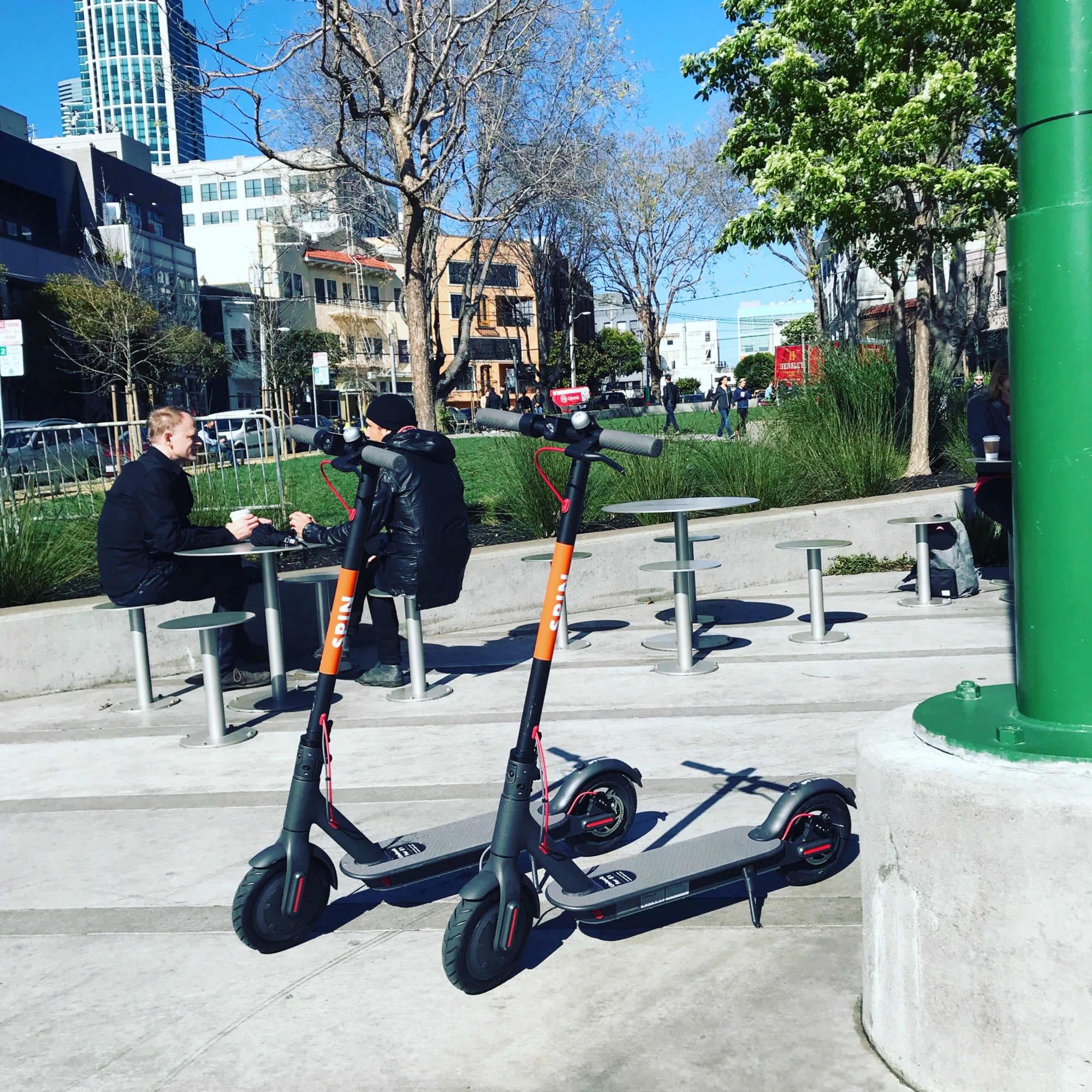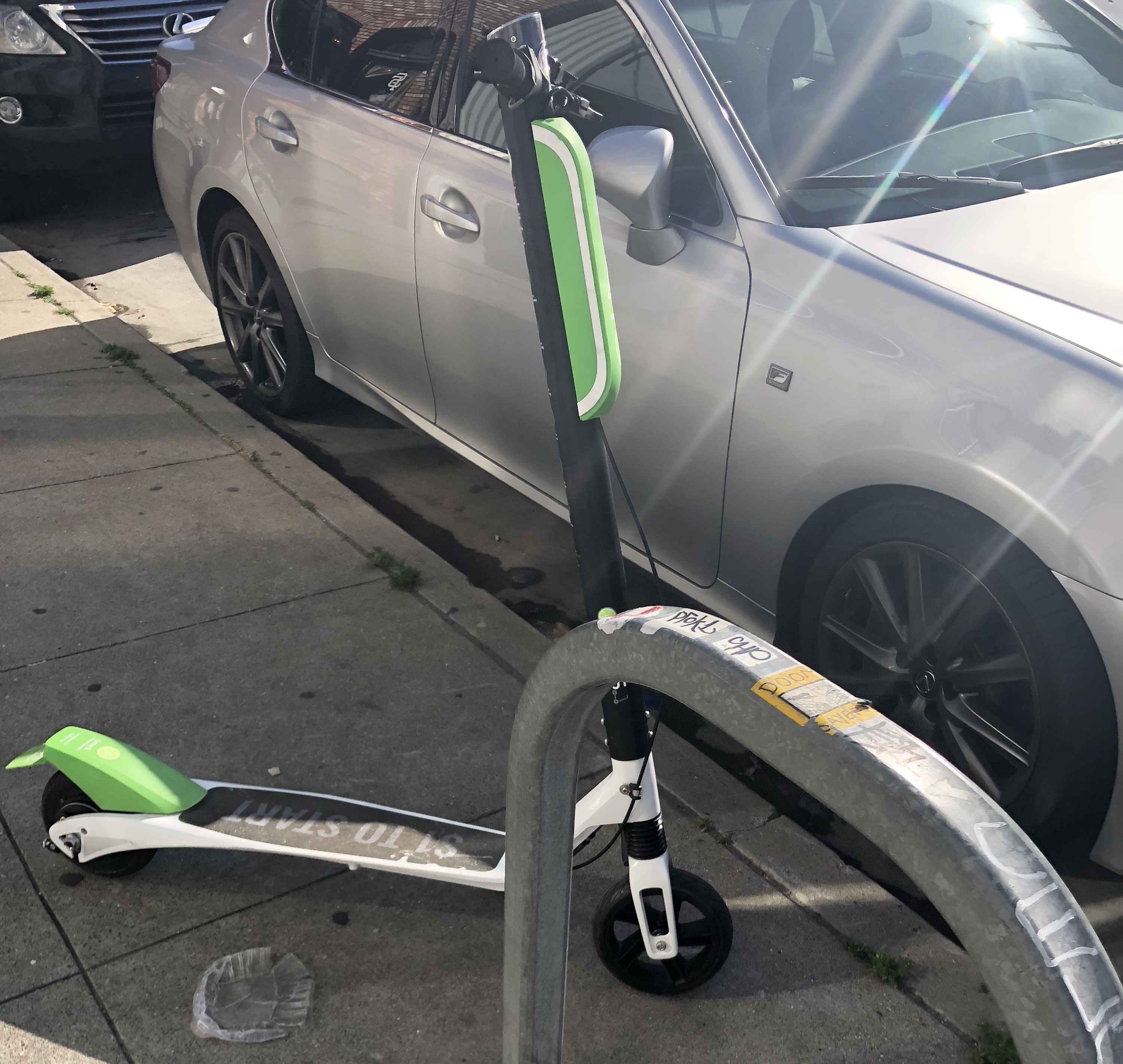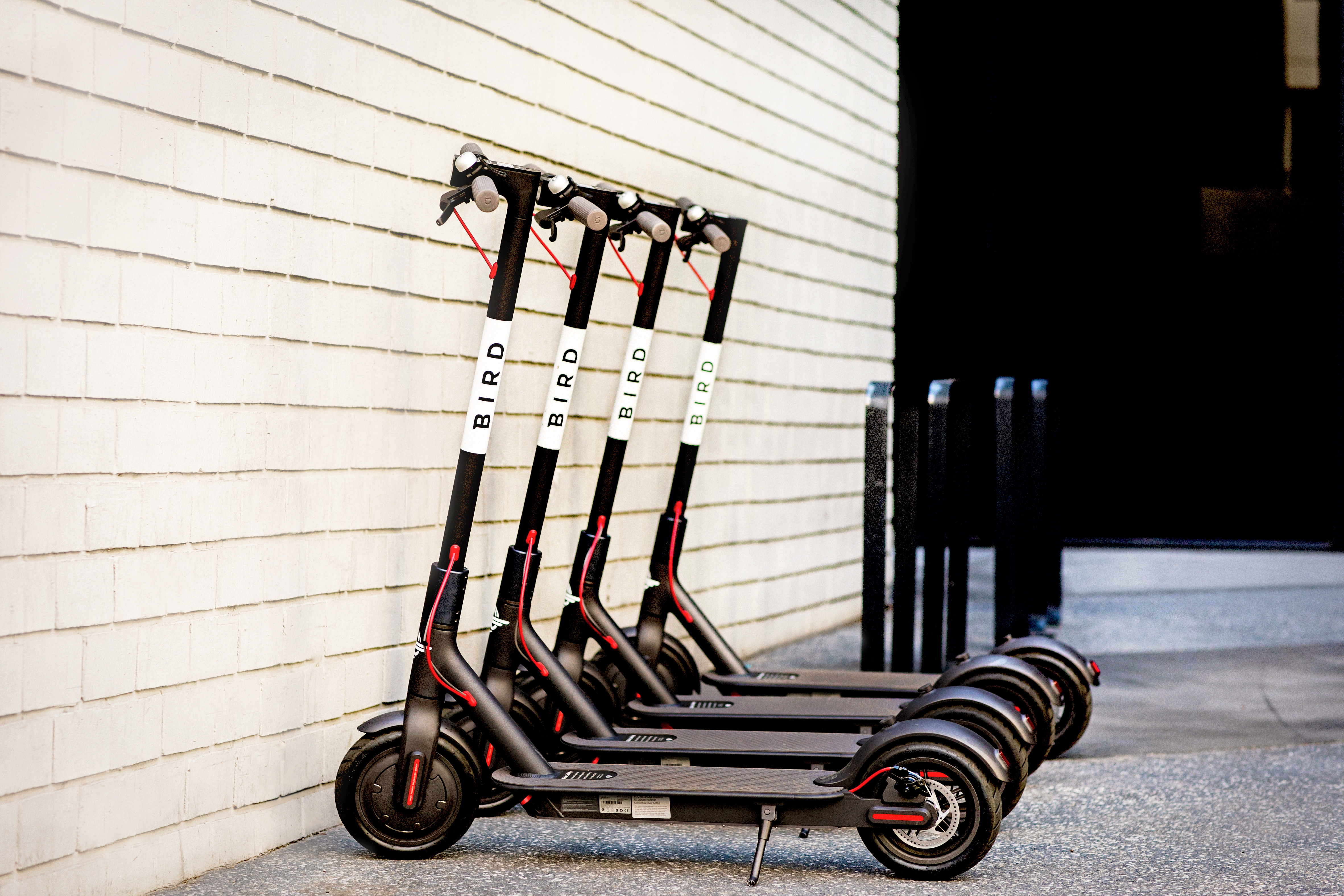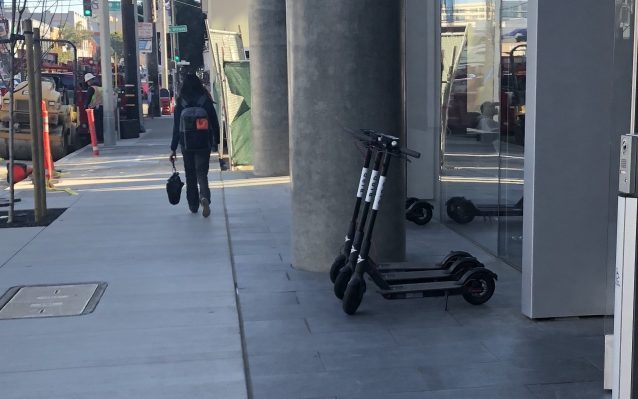Electric push scooters have recently hit the streets of San Francisco. Over the last couple of weeks, LimeBike deployed some scooters in conjunction with local festivities in the city. And just yesterday, Bird launched its scooters in San Francisco. Spin has also deployed some scooters in the city. As it stands today, these scooters from companies like LimeBike, Spin and Bird are currently operating in a bit of a legal gray area.
That’s why the San Francisco Municipal Transportation Agency is currently looking to create legislation, in collaboration with SF Supervisor Aaron Peskin, to “create appropriate permits and requirements to regulate motorized scooter sharing in the public right-of-way,” an SFMTA spokesperson told TechCrunch. “In the meantime, shared scooters are not explicitly covered in the Transportation Code.”
In separate letters to Spin, Lime and Bird today, the SFMTA let each company know it is aware they have respectively placed shared electric scooters on the sidewalks.
“As you may know, the San Francisco Municipal Transportation Agency (SFMTA) is developing a permitting program for motorized scooter sharing systems,” SFMTA Director of Transportation Edward Reiskin wrote in the letter. “We request your cooperation as we finalize the legislation and permit application.”
The SFMTA is asking each company for their respective business plans, detailing how they will comply with the city’s requirements around the use of sidewalks, plazas and other public spaces. The SFMTA also wants the plans to describe if and how the scooters will use any bike racks or other existing infrastructure, if there will be any new types of infrastructure built, how it will ensure there’s not over-concentration of scooters in one area, how many scooters the companies plan to deploy and how the companies will ensure the scooters are maintained.
“We will not tolerate any business model that results in obstruction of the public right of way or poses a safety hazard,” Reiskin wrote.

Update 9:48pm: Spin has since gotten in touch with TechCrunch to say the company has been “completely transparent” with the SFMTA and members of the SF board of supervisors.
Since these companies have already deployed their scooters, the SFMTA is asking to receive a response by the end of next week. While scooter-sharing isn’t explicitly outlined in the city’s transportation code, it is illegal to place a scooter in a way that obstructs the sidewalk, the SFMTA spokesperson said. It’s also illegal to ride these scooters on sidewalks, and ride them without a helmet.
“The SFMTA would urge any potential operators of new transportation services to work closely with the SFMTA prior to launching a new program,” the spokesperson said. “While we welcome improved mobility options, we want to carefully consider the potential benefits and impacts of any new private transportation service to ensure that it serves the public interest.”

LimeBike, which unveiled its scooters last month, has been in communication with elected officials and the SFMTA, noting that there are no city ordinances that prohibit a shared scooter system in the city, a LimeBike spokesperson told TechCrunch. While the city works to regulate scooter sharing, LimeBike says it is a limited pop-up program.
“As a Bay Area headquartered company, LimeBike is fully committed to ensuring we are positive contributors to San Francisco,” the spokesperson said. “We are excited to continue working with the SFMTA, Board of Supervisors and community as the formal permit process is developed, to identify mobility solutions that meet the City’s equity goals and help connect all parts of the city.”
Bird also says it started talking with the SFMTA before launching in the city, a Bird spokesperson told TechCrunch. Bird also says it welcomes the letter from Reiskin, SFMTA’s director of transportation, and looks forward to “working with him to develop a regulatory framework to bring these new electric vehicles to San Francisco so we can curb traffic, reduce greenhouse gas emissions, and help more people get where they need to go.”

A JUMP bike alongside a Bird scooter in San FranciscoEarlier this year, the SFMTA granted an exclusive, 18-month permit to electric bike-sharing startup JUMP. The program is designed to enable the SFMTA collect data and assess if a program like this will work in the long-term. Similar to what the SFMTA did around car-sharing, the aim is to better understand the needs and impacts of this type of mobility service.
